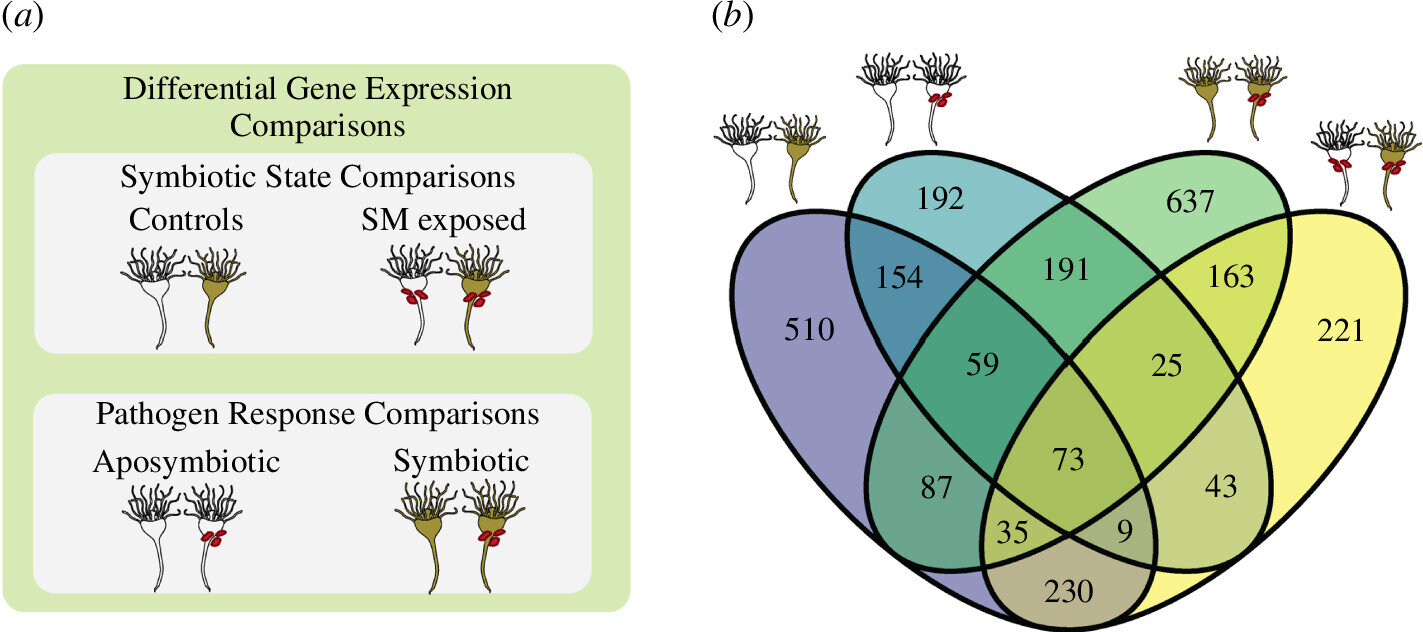Many marine animals, including jellyfish, corals, and sea anemones, engage in a unique symbiotic relationship with algae within their cells. These animals provide the algae with nutrients and shelter, while in return, the algae produce food for their hosts via photosynthesis. This food-sharing relationship, however, can come with unexpected consequences for the host animal’s immunity.
In a recent study led by researchers at The University of Texas at Arlington, scientists uncovered how algae living inside jellyfish cells can weaken the animals’ immune systems. The study suggests that, although algae contribute to the host’s food supply, they also alter the host’s immune response, similar to how pathogens in humans—like the malaria parasite—impact immunity. This finding could have important implications for the conservation of coral reefs, which rely on similar symbiotic relationships and are threatened by diseases like stony coral tissue loss disease.
The research focused on the polyp stage of the upside-down jellyfish, a life stage during which the jellyfish may or may not host symbiotic algae. This setup allowed scientists to compare the immune responses of jellyfish polyps with and without algae. The researchers exposed both groups to a harmful bacterium and observed that jellyfish polyps hosting algae had significantly lower survival rates than those without algae.
“Jellyfish polyps with algae were less effective at fighting bacterial infections,” said Madison Emery, lead author and UTA alumna. Now a postdoctoral researcher at Michigan State University, Emery found that the algae-hosting polyps had different gene expressions linked to immune response. These immune responses included stronger inflammation, which ultimately caused greater cellular damage.
“This study has major implications for coral health and conservation,” said Dr. Laura Mydlarz, UTA biology professor and co-author of the study. “Coral reefs depend on their relationship with algae for survival, and understanding how these symbiotic relationships impact immune health is essential for protecting marine biodiversity. Our findings offer insight that could help develop strategies to protect coral reefs from diseases, especially in light of climate change.”
Along with Emery and Dr. Mydlarz, the research team included UTA Associate Professor Mark Pellegrino, doctoral student Emily Van Buren, and undergraduate researcher Renee Batiste. Additional contributors were Kelsey Beavers, a researcher at the Texas Advanced Computing Center at UT Austin, and Bradford Dimos, a postdoctoral researcher at Washington State University.
